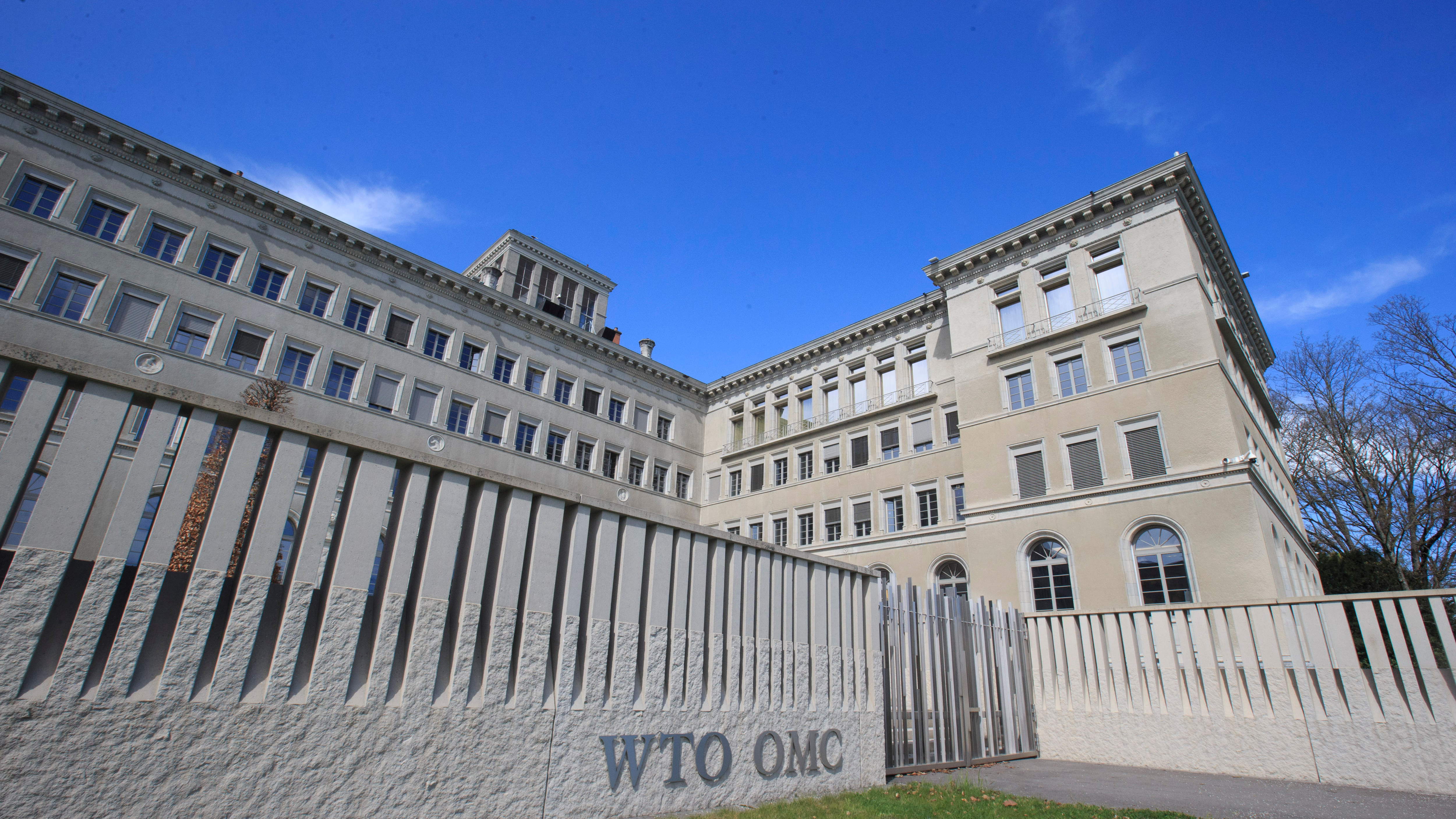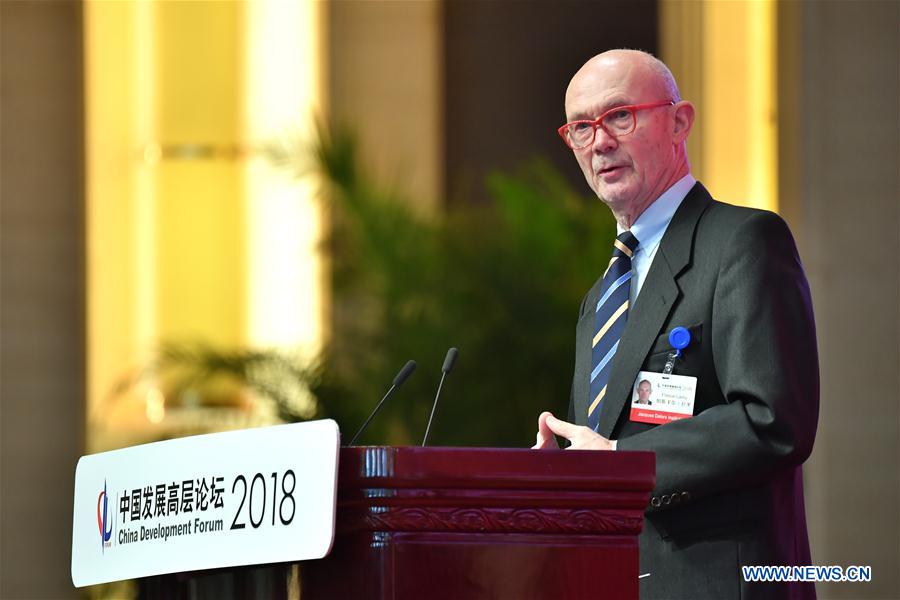
The World Trade Organization headquarters in Geneva, Switzerland. /Xinhua
The World Trade Organization headquarters in Geneva, Switzerland. /Xinhua
Editor's Note: Cheng Dawei is a professor at the School of Economics at Renmin University of China. The article reflects the author's opinions, and not necessarily the views of CGTN.
In the coming months, the World Trade Organization (WTO) will launch a selection procedure to replace Director-General Roberto Azevedo. The WTO will consult with all members and try to build a consensus for finding a final candidate.
Members from developing countries have declared that they are interested in filling the position. Currently, there are three declared candidates from Africa. Europeans insist the new director-general (DG) needs to be a European. Spain's Minister of Foreign Affairs Arancha González-Laya is a potential candidate. She calls that members must "think big" but "start small." EU trade commissioner Phil Hogan shows he is considering becoming a candidate too.
The selection process will not be easy. According to WTO law, DG candidates should have extensive experience in international relations encompassing economic, trade and/or political experience; a firm commitment to the work and objectives of the WTO; proven leadership and managerial ability; and demonstrated communication skills.
I believe that the currently declared candidates all have rich trade backgrounds. However, it has always been the case that the selection has led to some political fighting, making the process more difficult.
This year, the international political environment is more complicated. The WTO appellate body is facing a crisis, nationalism and protectionism are rising globally, U.S.-China trade disputes are still ongoing, there is no big achievement in negotiating new rules and no clear message in how to start WTO reform.
The selection of a new leader is important. First, it could save the world trading system and help countries work together for free trade. Second, it could restore the WTO's credibility. Third, it could create a path forward for WTO reform.
I was lucky to have met several leaders of the WTO. The first one was Mike Moore of New Zealand. After the 1999 Seattle WTO protests, developing countries fought for the DG position with developed countries. The final consensus reached was that Mike Moore from the developed world and Supachai Panitchpakdi from Thailand would share one term.

Former head of the World Trade Organization Pascal Lamy speaks at the China Development Forum Economic Summit in Beijing, March 24, 2018. /Xinhua
Former head of the World Trade Organization Pascal Lamy speaks at the China Development Forum Economic Summit in Beijing, March 24, 2018. /Xinhua
During his term, Moore maintained WTO's core focus on trade liberalization but also rightfully placed emphasis on development issues and the interests of poorer members. The Doha Round of negotiations was put on the agenda. He always had a clear message fighting for the poor. Moore witnessed China's accession to the WTO, saying that it makes the global trading system truly global by bringing China inside the WTO.
I remember when I met him at Doha, he said, "You are too young to be a professor." Time flies, a generation of trade experts have grown older; unfortunately, the trade system faces more difficulties.
When Supachai Panitchpakdi took his position in 2002, he gained very little of the political support for the Doha negotiations. He complained, "Everyone has a generalized commitment to progress, but when it comes to the specifics, the familiar defensive positions take over."
But he did not give up hope of progress; he talked with countries, and kept his ambitions. He once joined a CCTV dialogue show, explaining his trade philosophy. My students and I were lucky to take part in the show.
Following Panitchpakdi was Pascal Lamy of France, who was EU trade commissioner during the Doha negotiations. He was a nice trade diplomat and had very good relations with China. He once gave a speech to my students at Renmin University of China. He knew that people's lives are more closely linked with those of others across the world. He encouraged the students to be future leaders of the world system.
I was very lucky to meet those outstanding trade diplomats. Today, the future of the WTO does not look bright, but memories of good times are still fresh. We understand the trade system has always been struggling to gain consensus, but we need to look forward.
The Great Depression, Cold War, World War I and II, all of these words are getting popular again. But peace, prosperity and development are still our hope. Today, more than ever before, the WTO needs a progressive leader.
U.S. President Donald Trump has contributed to the crippled world trading system. It is time for Trump to reset his trade agenda. The good news is that U.S. trade negotiator Robert Lighthizer has shown support for launching the DG selection process.
Azevedo told WTO members a few days ago that "instead of focusing all efforts on the search for compromise – on finding flexibility and making concessions – we would be spending valuable time on a politically charged process that has proved divisive in the past."
Azevedo acknowledged that huge difficulties lie ahead.
Please remember, China is always a supportive member of the WTO.
(If you want to contribute and have specific expertise, please contact us at opinions@cgtn.com)